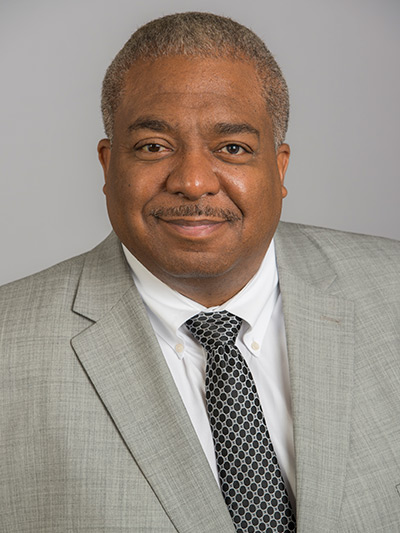 The Wisconsin Alzheimer’s Disease Research Center (ADRC) and the Alzheimer’s & Dementia Alliance of Wisconsin (ADAW) will host Dr. Keith Whitfield for a free public talk, “Mind Over Matter: Healthy Cognitive Aging with an Emphasis on African American Men,” at the 7th Annual Solomon Carter Fuller Community Discussion about Alzheimer’s Disease and Memory Screening Day.
The Wisconsin Alzheimer’s Disease Research Center (ADRC) and the Alzheimer’s & Dementia Alliance of Wisconsin (ADAW) will host Dr. Keith Whitfield for a free public talk, “Mind Over Matter: Healthy Cognitive Aging with an Emphasis on African American Men,” at the 7th Annual Solomon Carter Fuller Community Discussion about Alzheimer’s Disease and Memory Screening Day.
An expert on aging among African Americans, Whitfield has published 200 articles, books, and book chapters on cognition, health, and individual development and aging. The event begins at 6:30 p.m. on Friday, Feb. 24 at Mt. Zion Baptist Church, 2019 Fisher St on Madison’s south side. Whitfield’s talk will be followed by a community discussion about Alzheimer’s disease and a reception. This event is free and open to the public.
The Alzheimer’s disease education weekend continues on Saturday, Feb. 25 with the 7th Annual Solomon Carter Fuller Memory Screening Day. A daylong schedule of educational workshops for people affect by Alzheimer’s disease or other forms of dementia and free, confidential memory screenings will begin at 9 a.m. at the Urban League of Greater Madison, 2222 South Park Street.
Whitfield is provost of Wayne State University in Detroit, Michigan. Previously, he was vice provost for academic affairs at Duke University, and held appointments as professor in the Department of Psychology and Neuroscience, research professor in the Department of Geriatric Medicine at Duke University Medical Center, and senior fellow at the Center for the Study of Aging and Human Development. He also was the co-director of the Center on Biobehavioral Health Disparities Research.
This event started as a one-day opportunity for free memory screenings hosted by ADAW and the Wisconsin ADRC and has expanded to included national experts on Alzheimer’s disease and aging in the African American community. The Solomon Carter Fuller Community Discussion about Alzheimer’s Disease and Memory Screening Day is held each year during Black History Month and celebrates Dr. Solomon Carter Fuller, a pioneer in Alzheimer’s disease research and the first African American psychiatrist.

“We want people to talk about Alzheimer’s disease, whether they are caring for a family member or friend with the disease or are simply worried about their own memory,” said Charlie Daniel, Diversity Coordinator with ADAW. “We want people to know that it’s okay to say, ‘I need help caring for grandma’ and know that there are programs and services available. Having this conversation will hopefully encourage people to start talking.”
Alzheimer’s disease is often referred to as the silent epidemic among African Americans, affecting almost twice as many black people as whites; yet they are less likely to be diagnosed or are diagnosed during the later stages of the disease. ADAW is working to raise awareness of the issues associated with this and other types of dementia and make connections to programs and services designed to support families as they care for loved ones at all stages of the journey.
According to Administration on Aging, Alzheimer’s disease is the fourth-leading cause of death among African-American elders, possibly due to the higher incidence of heart disease, diabetes and high blood pressure, all of which are risk factors for dementia.
For those that are caring for a loved with dementia, the impact is staggering. AOA estimates African Americans who must leave the workforce to care for an afflicted family member lose, on average, more than $300,000 in earnings, pensions and Social Security benefits and are more than three times as likely to live in poverty than similarly situated white Americans. The economic, health, social and psychological costs of Alzheimer’s disease to African Americans, already severe, are growing rapidly as the proportion of older Americans in minority groups doubles between 2012 and 2050. In addition to Dementia, seniors may also suffer from conditions that affect their mobility. They may need devices that can help Enhance Home Mobility.
“Recognizing the difference between healthy, normal aging and cognitive impairment can be empowering because if it is caught early enough, there are medications that can address some of the symptoms,” says Daniel. “Caregivers can also learn ways to support loved ones that can help minimize stress and lead to a better quality of life for families. This disease should not be faced alone.”
Members of the public can schedule a memory screening appointment at the 7th Annual Solomon Carter Fuller Memory Screening Day by calling (608) 232-3400 or toll-free 888-308-6251. Walk-in appointments are also available until 2:15 p.m.




























